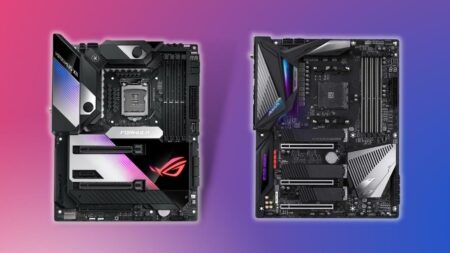There is a lot of debate over whether or not GPU clock speed matters for gaming. Some people swear by overclocking their graphics card to get the best performance, while others claim that it doesn’t make a difference.
So, what’s the truth? In this blog post, we will take a look at some of the research on this topic and try to answer that question once and for all!
Does GPU Clock Speed Matter for Gaming?
The GPU clock speed is one of the most important factors to users because it indicates how fast the cores of the GPU can process information. In other words, a higher GPU clock speed means faster processing.
The clock speed of a Gamer’s Graphics Processing Unit is important because the faster the framerate, the better their performance will be. But it’s not just gamers who need to worry about GPU clock speeds; image editors and those who do other kinds of image processing work rely on them too.
Usually, GPUs have two critical components: the clock speed rate and the number of cores. A higher clock speed is generally better because it indicates how fast the cores are.
Both factors are essential; the number of GPU cores reflects the number of tasks it can handle while GPU clock speed references the frequency at which a processor’s clock generator produces pulses.
For professional gamers, it’s recommended to have a clock speed rate that is above 1GHz. However, if you don’t take gaming as seriously, then a lower clock speed rate will suffice.
What Really Is GPU Clock Speed?
The clock speed is the number of operations your GPU can perform in one second, measured in hertz. So, a 1GHz clock speed means your GPU can perform 1 billion operations per second. But, keep in mind that not all operations are equal.
Some will require more processing power than others. So, just because your GPU has a 1GHz clock speed, doesn’t mean it can handle all operations at that speed.
Your GPU’s clock speed is determined by the manufacturing process and can be increased or decreased by overclocking. Overclocking is when you manually increase your GPU’s clock speed to make it go faster than the manufacturer intended.
This can be done by changing the settings in your GPU’s control panel or using third-party software. Overclocking can improve your GPU’s performance, but it also comes with risks.
If you overclock your GPU too much, you can damage it. That’s why it’s important to know what you’re doing before you start overclocking.
Do Higher GPU Clock Speeds Really Matter?
Unfortunately, there is no simple answer to this question. It depends on a variety of factors, including the type of games you play, your graphics settings, and your CPU.
That said, in general, a higher GPU clock speed will result in better performance. That’s because a higher clock speed means your GPU can process information faster.
However, there is a limit to how much of a difference a higher clock speed will make. For example, if you have a GPU with a 1GHz clock speed and you overclock it to 1.1GHz, you likely won’t notice a significant difference in performance.
On the other hand, if you have a GPU with a 1GHz clock speed and you overclock it to 2GHz, you will probably see a significant increase in performance.
So, whether or not overclocking your GPU is worth it depends on how much of a difference it will make. If you’re not sure, it’s always best to err on the side of caution and not overclock your GPU. Overclocking can be a complex topic, and there’s a lot to consider before you do it.
